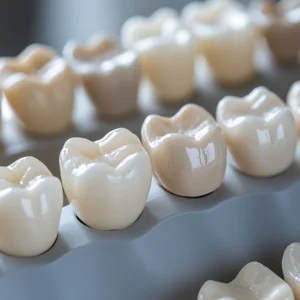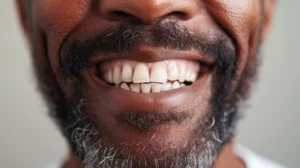Table of Contents
January 1st often marks the beginning of healthier habits and resolutions for the year ahead. Many celebrate the New Year with a toast, making National Hangover Day a fitting title for January 1st after the festivities. While celebrating can be fun, it’s important to consider the effects of alcohol on your oral health. Like sugar, alcohol should be enjoyed in moderation to protect both your teeth and your overall health.
Start the New Year with Healthy Oral Habits
To set yourself up for a brighter smile, here are some essential oral health goals to add to your resolutions:
- Incorporate More Fruits and Vegetables
Fresh fruits and vegetables contain nutrients that strengthen your immune system and protect against periodontal (gum) disease. Nutrient-dense foods support better oral health, giving your teeth and gums the necessary care. - Commit to Quitting Tobacco
Make this the year you quit smoking! Smokers are almost twice as likely to lose their teeth as non-smokers, so quitting is a resolution that benefits both your oral and general health. - Brush and Floss Daily
Brush twice daily and floss once daily to remove plaque from between teeth and below the gumline. These habits are essential for preventing gum disease and keeping your mouth fresh. - Schedule Regular Dental Visits
Routine checkups, at least twice a year, allow our dentist to catch any potential issues early, helping you maintain a healthy, vibrant smile.
Why Is Alcohol Bad for Oral Health?
Alcohol can negatively affect your teeth and gums in numerous ways. When combined with sugary mixers, alcohol creates an acidic environment in the mouth, leading to enamel erosion, tooth decay, and gum disease. Like sugar, alcohol feeds harmful bacteria in the mouth, leading to plaque buildup and acid production that weakens enamel.
While occasional drinking isn’t likely to cause serious damage, frequent alcohol consumption increases the risk of enamel erosion. Alcohol also dehydrates the body, reducing saliva production. Saliva is vital for neutralizing acids and rinsing away bacteria, so when saliva is low, teeth become more susceptible to decay, sensitivity, and oral infections.
How Alcohol Affects Your Gums
For those who frequently consume alcohol, there’s a heightened risk of gum disease. Alcohol promotes plaque buildup around the gumline, leading to irritation, inflammation, and infection. If you already have gum disease, alcohol can slow the healing of gum tissue, exacerbating the condition.
Chronic alcohol use is also one of the primary risk factors for oral cancer, increasing the likelihood of cancer in areas like the lips, cheeks, tongue, and throat. Regular dental exams at Hardin Family Dental can aid in early detection of oral cancer, improving the chances of successful treatment.
Protecting Your Smile by Limiting Alcohol Intake
As the New Year begins, limiting alcohol to special occasions can go a long way in preserving your oral health. By making these simple resolutions, you’re investing in a healthier, brighter smile. Hardin Family Dental supports your commitment to reducing alcohol consumption for better oral health. Call us today to schedule your next dental checkup and kick off the year with a healthy start!



